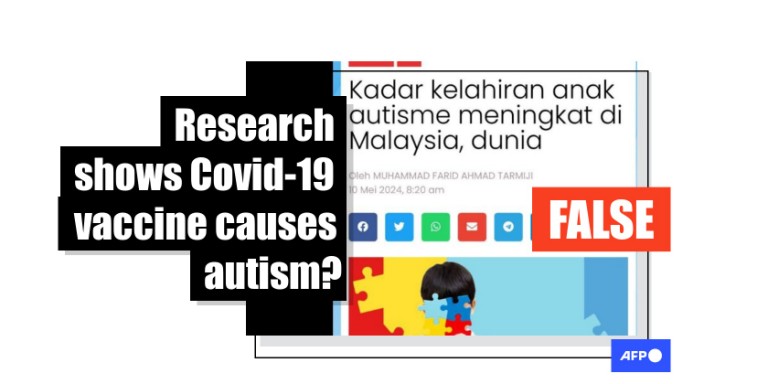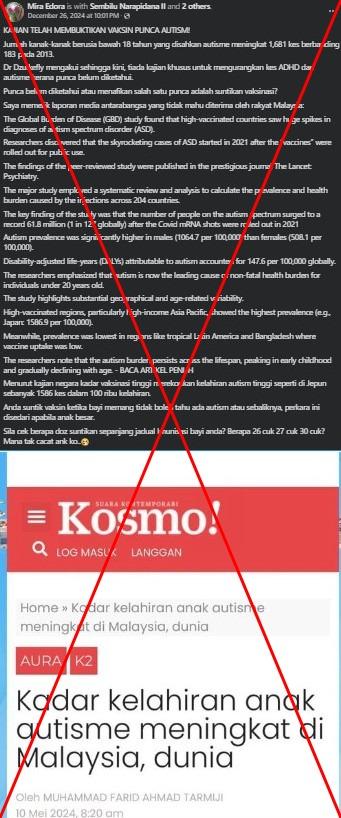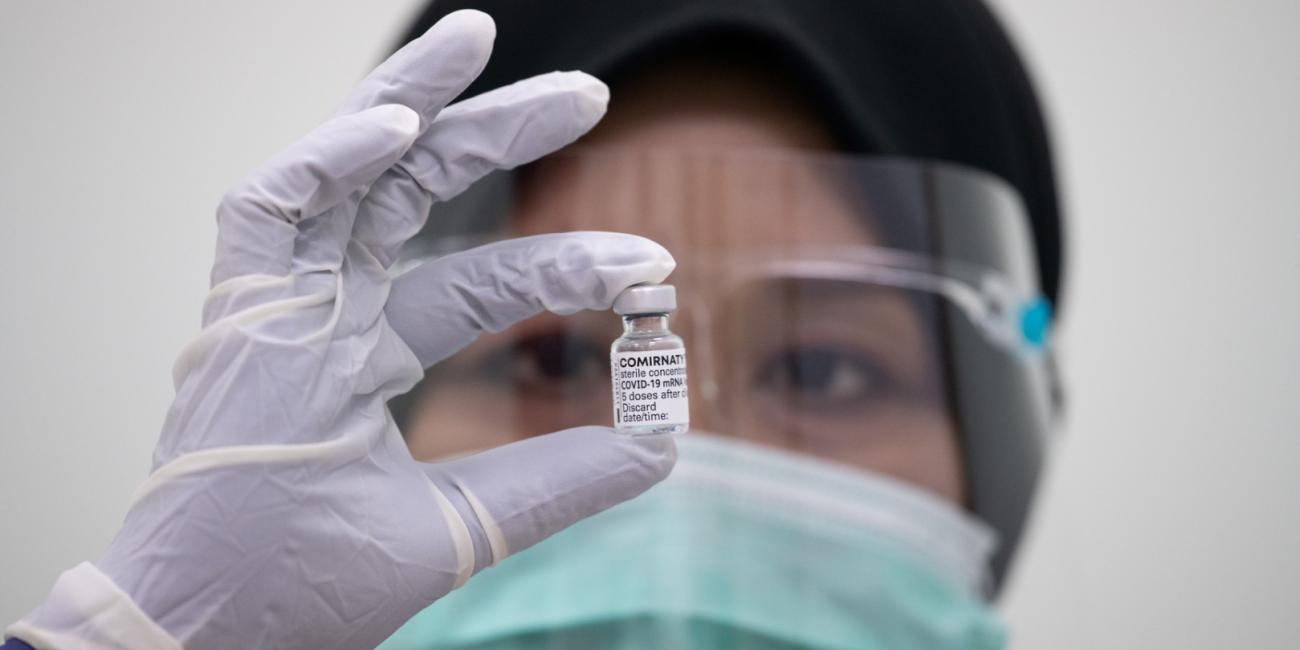
Misquoted Lancet report sparks misinformation on Covid vaccines, autism
- This article is more than one year old.
- Published on January 21, 2025 at 02:18
- 3 min read
- By Raevathi SUPRAMANIAM, AFP Malaysia
"Research has shown that vaccines are the cause of autism," read a Facebook post written in English and Malay shared on December 26, 2024.
"The Global Burden of Disease (GBD) study found that high-vaccinated countries saw huge spikes in diagnoses of autism spectrum disorder (ASD)," it added.
"Researchers discovered that the skyrocketing cases of ASD started in 2021 after the 'vaccines' were rolled out for public use."
Malaysia launched its Covid-19 vaccine drive for adults in February 2021 and it was later expanded to include children aged five and over (archived link).
The Facebook post showed an article by Malay news outlet Kosmo headlined: "The birth rate of autistic children is increasing in Malaysia and the world".

Autism is a lifelong developmental disability that may cause a person to have difficulty with communication and social interaction. It is believed to be influenced by genetic and environmental factors, though scientists do not fully understand all its causes (archived link).
Misinformation linking vaccination to autism has circulated for decades, rooted in a widely debunked 1998 study that suggested a link between the condition and the measles, mumps and rubella (MMR) shot.
The Facebook post -- and a string of similar posts -- surfaced after Malaysia reported an 815 percent rise in the number of children diagnosed with autism between 2013 and September 2024 (archived link).
The Ministry of Women, Family and Community Development (KPWKM), which released the figures, did not speculate on the reason behind the increase -- but scientists have pointed to improved screening and the expansion of diagnostic criteria over the years as a possible explanation.
"Other factors, such as prenatal and perinatal complications, exposure to certain environmental toxins, and maternal infections during pregnancy, have also been studied as potential contributors to the development of autism," according to the US-based Drake Institute of Neurophysical Medicine (archived link).
No link 'at all'
A keyword search on Google found The Lancet report that was misrepresented on Facebook.
The medical journal published the 11-page paper on December 19, 2024 titled: "The global epidemiology and health burden of the autism spectrum: findings from the Global Burden of Disease Study 2021" (archived link).
It summarised findings on the global prevalence of autism and its burden on health systems, emphasising the need for early detection and lifelong support services for those affected. It did not mention Covid-19 or vaccines.
Dr Norazlin Kamal Nor, a senior consultant paediatrician at the Universiti Kebangsaan Malaysia Faculty of Medicine -- who was not involved in The Lancet's research -- said the paper "did not propose a link or association between Covid-19 vaccine and autism spectrum disorder at all" (archived link).
The report showed the prevalence of autism spectrum was high, she said, with 788.3 per 100,000 persons affected -- and that autism led to a heavy cost in terms of health burden.
"This information is meant to help inform allocation of health services for autistic individuals," she told AFP.
Furthermore, the Kosmo report shared in Facebook posts did not mention Covid-19 or vaccines (archived link).
The article from May 10, 2024 featured family health specialists talking about diagnosing autism and ways parents can help children affected by the condition.
According to the World Health Organization (WHO), serious or long-lasting side effects to Covid-19 vaccination are extremely rare.
Typical side effects include pain at the injection site, fever, fatigue, headache, muscle pain, chills and diarrhoea, it said.
Copyright © AFP 2017-2026. Any commercial use of this content requires a subscription. Click here to find out more.
Is there content that you would like AFP to fact-check? Get in touch.
Contact us




